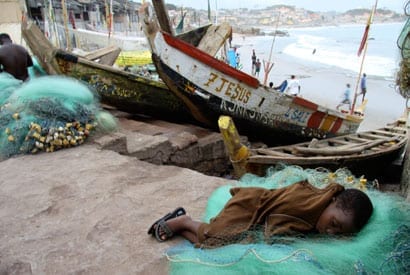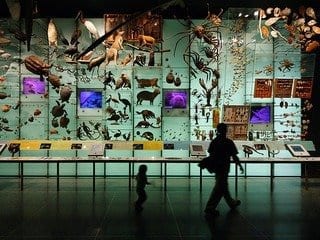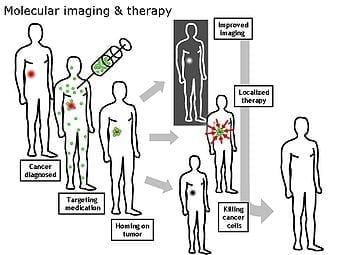
Global decline of wildlife populations is driving increases in violent conflicts, organized crime and child labor around the world, according to a new policy paper led by UC Berkeley researchers.
The authors call for biologists to join forces with experts such as economists, political scientists, criminologists, public health officials and international development specialists to collectively tackle a complex challenge.
The paper, published today (Thursday, July 24) in the journal Science, highlights how losses of food and employment from wildlife decline cause increases in human trafficking and other crimes, as well as foster political instability.
“This paper is about recognizing wildlife decline as a source of social conflict rather than a symptom,” said lead author Justin Brashares, associate professor of ecology and conservation at UC Berkeley’s Department of Environmental Science, Policy and Management. “Billions of people rely directly and indirectly on wild sources of meat for income and sustenance, and this resource is declining. It’s not surprising that the loss of this critical piece of human livelihood has huge social consequences. Yet, both conservation and political science have generally overlooked these fundamental connections.”
Fishing and the rise of piracy
Fewer animals to hunt and fish demand increasingly greater effort to harvest. Laborers, many of them children, often are sold to fishing boats and forced to work 18- to 20-hour days at sea for years without pay, the authors said.
“Impoverished families are relying upon these resources for their livelihood, so we can’t apply economic models that prescribe increases in prices or reduced demand as supplies become scarce,” said Brashares. “Instead, as more labor is needed to capture scarce wild animals and fish, hunters and fishers use children as a source of cheap labor. Hundreds of thousands of impoverished families are selling their kids to work in harsh conditions.”
Read more . . .
The Latest on: Wildlife decline
[google_news title=”” keyword=”Wildlife decline” num_posts=”10″ blurb_length=”0″ show_thumb=”left”]
via Google News
The Latest on: Wildlife decline
- Florida sawfish deaths, 'spinning' fish declineon May 1, 2024 at 7:54 am
TALLAHASSEE - Florida Fish and Wildlife Conservation Commission officials hope they are seeing decreased incidents of what are described as "erratically spinning fish" and smalltooth sawfish deaths in ...
- Wolf population on remote island on Lake Superior remain stable while moose numbers declineon April 30, 2024 at 9:50 am
An annual survey of wildlife has been cut short as warm temperatures hit Isle Royale, but enough data has been documented to show the wolf population is stable while the moose population is declining.
- Bugs Matter survey reveals ‘unsustainable’ decline in England’s flying insect numberson April 30, 2024 at 5:58 am
A significant fall in insect numbers is ‘incredibly concerning’ say the wildlife experts behind a new report into the health of England’s wildlife. Flying insect numbers have plummeted by 83% since ...
- Urban Wildlife and the ecosystem under our feeton April 29, 2024 at 5:00 pm
Habitat loss threatens wildlife across the country, yet in Iowa, urban environments can provide refuge to large varieties of wildlife. In Ames, any person interested in observing the local wildlife ...
- State wildlife officials seek public input on sea turtle planon April 29, 2024 at 4:34 pm
The deadline is May 24 to submit comments to the Wildlife Resources Commission about the proposed sea turtle conservation plan.
- ‘Snow deluge’ years on the decline across the US West, thanks to climate change: Studyon April 29, 2024 at 12:46 pm
While climate change is in general increasing the ferocity and frequency of severe weather events, the same effects may not apply to the massive snow dumps that occasionally pummel the U.S. West. The ...
- North Carolina Wildlife Resource Commission looking for opinions of Sea Turtle Conservation Planon April 26, 2024 at 6:19 pm
The North Carolina Wildlife Resources Commission is seeking the public’s opinion on its Sea Turtle Conservation Plan through May 24.
- NC Wildlife Commission seeks public input for Sea Turtle Conservation Planon April 26, 2024 at 11:55 am
A state agency is requesting the public's input regarding the Sea Turtle Conservation Plan.The N.C. Wildlife Resources Commission says the public comment perio ...
- As turkey numbers decline, a new organization is stepping up to help in eastern Pa.on April 25, 2024 at 3:36 am
In areas where there used to be solid numbers of the birds, there now appear to be relatively few. This is coming from a life-long, diehard turkey hunter who hunts hard throughout eastern Pennsylvania ...
- Feds decline protections for ancient lake sturgeonon April 22, 2024 at 5:39 pm
Individual lake sturgeons can live up to 100 years old, weigh up to 300 pounds and grow over eight feet long. Its population, however, has declined by nearly 99%.
via Bing News










